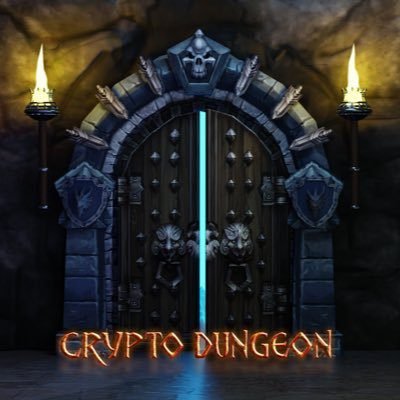Cosmos Validators
In the expansive and intricate world of blockchain technology, the role of a validator stands as a cornerstone in maintaining the dynamism and security of the network. Within the innovative realms of the Cosmos ecosystem, validators ascend beyond mere participants, evolving into crucial stewards of blockchain integrity and efficiency. As gatekeepers of the Cosmos universe, these participants are not just technical entities; they represent the beating heart of decentralization and trust in this interconnected network. Cosmos validators play a critical role in the operation and security of the Cosmos Network, which is a decentralized network of independent, scalable, and interoperable blockchains. Here’s a detailed overview:
Role of Validators in Cosmos
Block Creation and Validation: They are responsible for creating new blocks in the blockchain. They validate transactions and add them to the blockchain.
Consensus: They participate in the Tendermint consensus mechanism, which is a Byzantine Fault Tolerant (BFT) protocol used by Cosmos. Validators vote on new blocks and reach consensus.
Becoming a Cosmos Validator
Stake Requirements: To become a validator, a node must stake ATOM, the native token of the Cosmos Hub. The amount of ATOM staked determines the validator’s voting power. This goes for any network that has proof of stake (POS). You will be staking the native token to validators to help secure the network.
Technical Requirements: Running a validator node requires technical knowledge, including maintaining server infrastructure, ensuring high uptime, and keeping the node secure from attacks.
Delegation
Delegators: ATOM holders who do not wish to run their own validator node can delegate their tokens to existing validators. This increases the validator’s voting power and potential rewards.
Rewards and Risks: Delegators earn a portion of the transaction fees and block rewards earned by the validator. However, they also share the risks, including potential penalties.
Rewards and Penalties
Rewards: Validators earn rewards in the form of transaction fees and block rewards. The rewards are distributed among the validator and its delegators.
Slashing: If a validator acts maliciously or fails to fulfill its duties (like going offline), it can be slashed. This means a portion of the staked ATOMs (both the validator’s and their delegators’) is burned as a penalty.
Governance Participation
They also play a role in the governance of the Cosmos network. They can vote on proposals, influencing decisions like software upgrades, parameter changes, or funding for community projects.
Security and Performance
High Uptime: Validators are expected to maintain high uptime. Downtime can lead to missed blocks and reduced rewards.
Security Measures: Validators must implement robust security measures to protect against hacking and other forms of cyber attacks.

Blue Collar Crypto
About Course
Course Curriculum
Introduction to The Cosmos Hub
-
00:00
-
00:00
-
00:00
-
00:00
-
00:00
-
00:00
Validators
-
00:00
-
00:00
-
00:00
-
00:00
-
00:00
-
00:00
Student Ratings & Reviews

Community and Ecosystem Impact
They often contribute to the Cosmos ecosystem through community engagement, educational content, and supporting network upgrades and developments.
Selection and Criteria
Quality and Trust: Not all validators are equal. The reputation, track record, and technical capabilities of validators can vary significantly.
Due Diligence: For delegators, choosing a validator requires careful consideration of these factors. They often publish their credentials, security measures, and performance statistics to attract delegators. Follow them on X, discord, and ask questions.
Economic Model and Incentives
Dynamic Incentive Structure: The Cosmos network incentivizes validators and delegators through a dynamic model that balances the need for security with the attractiveness of rewards.
Commission Rates: Validators set their own commission rates, determining how much of the rewards from block validation they keep before distributing the rest to their delegators.
Validator Clusters and Centralization Risks
Decentralization vs. Centralization: A core value of blockchain technology is decentralization. However, there’s a risk of centralization if a few validators control a large portion of the network’s stake. Find out why delegating outside of the Top 20 is important.
Balancing Act: The Cosmos community is aware of these risks and actively discusses mechanisms to encourage a more decentralized validator landscape.
Communication and Community Building
Community Engagement: Many validators actively engage with the community, providing updates, educational content, and participating in governance discussions.
Transparency and Trust: This communication is vital for maintaining transparency and building trust with delegators and the broader Cosmos community.
Challenges and Operational Complexities
Technical Challenges: Running a validator node involves complex technical challenges, including server management, network security, and blockchain-specific technicalities.
Continuous Learning: They must stay updated with the latest developments in blockchain technology and security practices.
Impact of Performance on Network Health
Network Stability and Security: The performance and reliability of validators directly impact the stability and security of the Cosmos network.
Influence on Network Upgrades: They play a crucial role in implementing network upgrades, as they must upgrade their nodes for the network to evolve.
Ecosystems and Collaborations
Interactions with Other Stakeholders: Validators often collaborate with developers, governance bodies, and other validators to improve the network.
Cross-Chain Collaborations: In Cosmos’s inter-blockchain communication (IBC) environment, they might be involved in activities that span multiple blockchains.
As we venture deeper, we uncover the layers that define a Cosmos validator. From their intricate involvement in the consensus mechanism to their proactive engagement in governance debates, validators are the unsung heroes ensuring the Cosmos network remains resilient, secure, and truly decentralized. This guide aims to demystify the complexities surrounding these key players, providing clarity on their roles, challenges, and the overarching impact they have within the Cosmos ecosystem
Join us as we embark on this enlightening exploration, gaining a comprehensive understanding of what it means to be a validator in Cosmos. Whether you’re a seasoned crypto enthusiast, a budding blockchain developer, or simply curious about the mechanics of decentralized networks, this guide offers invaluable insights into the pivotal world of Cosmos validators. If you want to learn more about the Cosmos Ecosystem?




